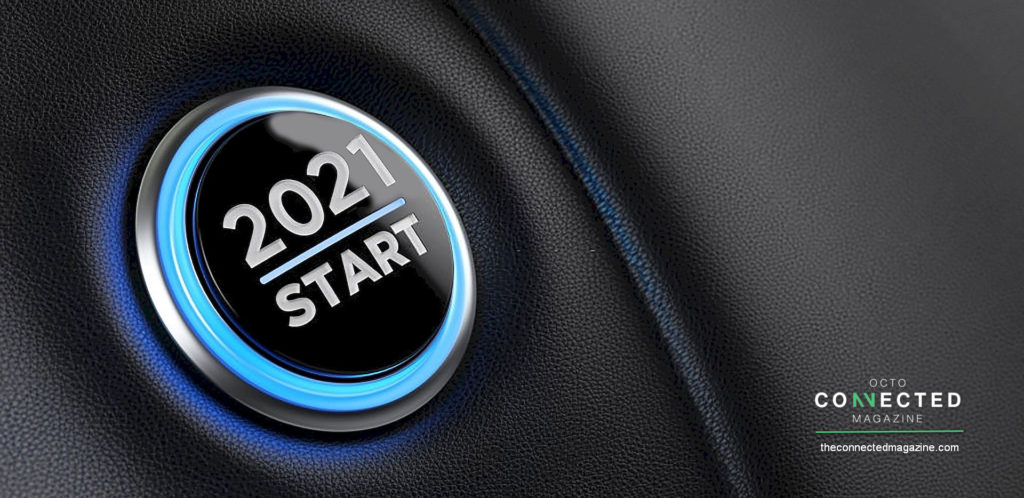
As expected, 2020 has seen a major decline in transportation and mobility. The impact of the pandemic is likely to reverberate throughout the first half of 2021. Still, the return to the New Normal needs to come with some imperatives to make it successful, i.e. Fleet & Mobility Efficient.
Working From Home
If there is one good thing 2020 has taught us, it is the feasibility and added value of Working From Home. According to a recent study with EU companies from Boston Consulting Group, commissioned by Microsoft, only 15% of companies had flexible work policies before the pandemic. By the summer of 2020 that figure increased to close to 80%. And no less than 88% mentioned they expect a hybrid form of remote working to continue after the pandemic ends. The concept of Working From Home has made us realise that business travel can be immensely reduced, with time efficiency and cost-savings as low-hanging fruit. Without questioning the importance of business travel and the company car, it is for sure the newest benefit in the mobility package of employees, leading to a new decision-taking dimension between Fleet, Procurement and HR.
Flexibility
The company car will not disappear – it will only be embedded in an adapted, more intelligent set-up. This new constellation will come with increased flexibility, both regarding mobility modes and the contract. For benefit fleets one could expect other mobility modes to play a bigger role, with micro- and last-mobility solutions in cities; and once we have returned to the New Normal, shared mobility will resume business as usual and thrive. Not surprisingly, fleet suppliers like OEMs and leasing and rental companies are launching flexible solutions to meet the needs of the new generation Fleet and Mobility managers and employees. In the face of the pandemic, companies have been trying to set up a strategy and policy that is less dependent on fixed long-term contracts. Flexible and diversified financing of the mobility assets for their employees are what they desire.
Green is your colour
The new company cars will be greener than ever before. Not only because the EU will continue to push OEMs to drive down CO2 emissions, resulting in a tsunami of plug-in hybrids and BEVs, but also because employees are conscious of their individual impact on the planet and want to make a personal effort. EVs have also become a cornerstone in CSR and in a company’s HR policy. CFOs will be happy to see that as battery technology evolves and cell prices come down, TCO parity closes in – in some countries, EVs are already cheaper to run thanks to subvention schemes. And then there is the charging question. Well, too many fleet managers are unaware of the solutions that are already in place to make EV driving and EV charging a comfortable experience. Also, myths and false assumptions seem hard to do away with. If anything, corporates need to start pilots to convince their stakeholders of the feasibility of electric driving.
Connectivity means efficiency
Whatever you do, do it wisely. To measure is to know, especially when seeking efficiency in terms of cost optimisation and utilisation of your fleet and the mobility solutions you have integrated. The best way to measure is to adopt telematics to generate and analyse data of your fleet, your drivers and their behaviour. This is certainly true when going for new initiatives like fleet electrification, shared or on-demand mobility. Despite reluctance based on privacy issues, the majority of international fleet managers are convinced about the added value of connectivity. The good news is that today’s telematics and connected technology companies are including new services and consultancy in their offering and that they are more closely collaborating with OEMs, leasing and management providers, enhancing the capabilities to know your fleet and mobility in real time and plan the actions you need for efficiency accordingly.
Mobility as a Benefit
The pandemic has questioned the relevance and hit the popularity of both shared mobility and public transport, but it has underpinned the importance of a healthy and safe mobility with an increase in micro-mobility. Hence today’s fleet managers with activities in Europe’s biggest cities, and a workforce that cares for a healthy work-life balance and respect for the environment, need to transform their Fleet programme into a Mobility strategy. Companies that find the right answer to the new employee benefit expectations, of which mobility is an important one, are best prepared to attract and retain talent and create success in 2021.
Source: fleeteurope.com